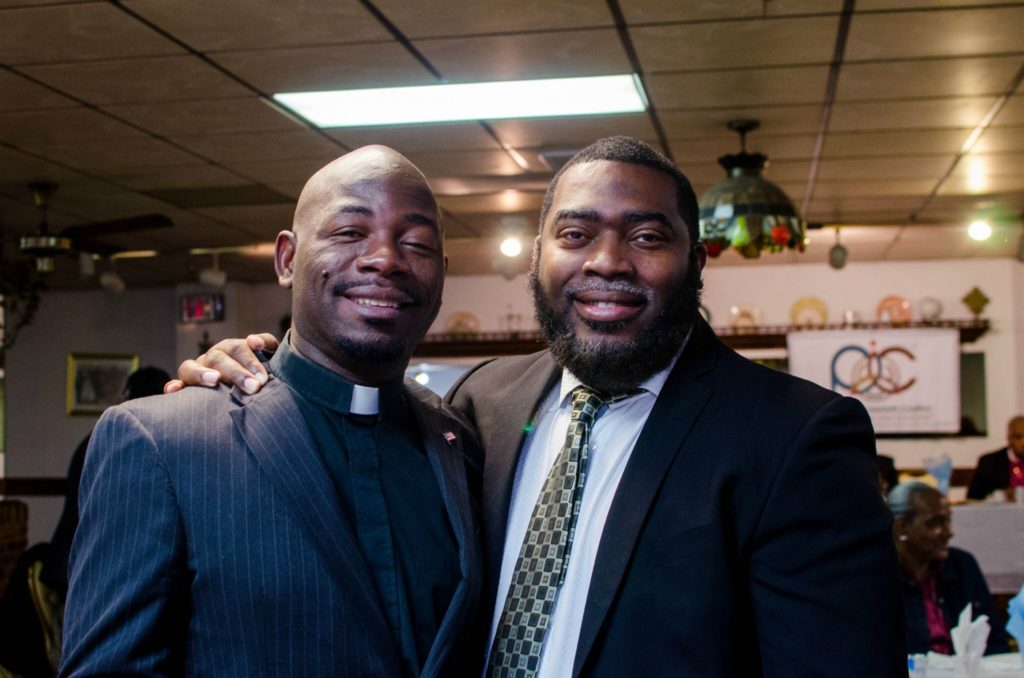A better partnership starts with awareness. Here’s how to get there.

Pastors and musicians have a history of fraught relationships, but yours doesn’t have to be that way. Everyone has their good and bad days, but no one deserves to be stuck at an impasse forever. Healthy relationships in the church are just as important as anywhere else. Here are a few of my suggestions for how to have a healthy relationship with your pastor. He or she should always be your number one partner in music ministry.
Don’t assume anything.
Too many musicians assume that the pastor is little more than a philosopher with his “head in the clouds.” Likewise, too many pastors assume that musicians are temperamental artists with little concern for the larger work of the church. Don’t make this mistake.

Grace
On the very first week of a brand-new church job, I missed the deadline for submitting bulletin information. Hours later, I received a stern email (which I returned by phone call) from the pastor. She explained that this information was very important, and that I needed to be sure not to miss the deadline in the future.
I thought I had made the worst possible first impression. I consider myself an organized person, but I’m much less organized in the absence of routine and ritual. Upon explaining this to my new boss, she seemed to understand why I had “dropped the ball.” I went on to demonstrate in the following weeks that I am indeed an organized person who seldom misses deadlines.
We would all be very fortunate to be treated with such grace. My new pastor could very well have assumed that I was just like any other “scatter-brained” musician. She could have said to herself “of course, that figures” and proceed to micro-manage my work habits. But she didn’t. She checked her assumptions and gave me the benefit of the doubt. Isn’t this kind of grace something to be admired? Shouldn’t the church be an environment of grace?
If you’re ever wondering how to have a healthy relationship with your pastor—or with anyone who matters—think about grace. Offer other people the grace of not molding them into who you think they are. Offer them the grace of not assuming anything. Why is this so critical? It’s because our assumptions cause us to favor evidence that supports our assumptions, and to dismiss evidence that contradicts them. Ever heard of the confirmation bias? Every good scientist knows the dangers of assuming too much.
The Long Run
Therefore, give your pastor the benefit of the doubt. It’s important that you continue assuming the best even as the relationship matures and deepens. We all have a tendency to assume that we can predict the motives and behaviors of the people we know best, but that isn’t necessarily true. You may think you know your pastor’s viewpoints on anything worth caring about…but you probably don’t.
For actionable steps you can take today, and to learn more about how to have a healthy relationship with your pastor, check out my two-page worksheet, Improve Your Relationship with Your Pastor.
Seek to understand the roles of the pastor.
A perspective on each other’s work helps to reduce the tension between pastor and musician.
The prayer attributed to Saint Francis of Assisi urges us to “…not seek as much to be consoled as to console, to be understood as to understand, to be loved as to love.” To put my own “spin” on this prayer, what it means is that consolation, understanding, and love are the paths to receiving the same in return. Set a good example.
For an excellent (and brief) discussion of the many roles of the pastor, I refer you to The Church Musician by Paul Westermeyer. Here are the six roles he cites:
- Study and Scholarship
- Sermon Preparation
- Leading Worship
- Pastoral Care
- Teaching
- Administration
The relative balance of each, of course, depends greatly on the nature of the specific church. Try observing your pastor’s behavior around each of these six areas. Think especially about administration and leading worship, as those roles tend to overlap with the musician. Is there some way you can make your pastor’s job easier? Which aspects of his or her job do you not fully understand or appreciate?
For a quick (and sobering) test of your understanding of the pastor’s work life, see the free worksheet below.
Do a personality inventory together.
They’re geeky and sometimes time-consuming, but personality assessments can be a great tool for learning how to have a healthy relationship with your pastor. I suggest you try taking inventory of your own personality and presenting the results to your pastor. She might return the favor without you even asking. It is well worth discussing your personality types and how they shape your interactions.
I commend to your exploration two well-known personality inventories:
- The Myers-Briggs Type Indicator is probably the best-known personality assessment tool. It allows you to self-score on four dimensions: a) extraversion vs. introversion; b) sensing vs. intuition; c) thinking vs. feeling; d) judging vs. perceiving.
- The Enneagram is becoming more popular lately. This system identifies nine basic personality types. Each of these types belongs to a center and wing that further helps predict and explain behavior.
One giant disclaimer/caution/warning about categorizing personalities is that inevitably you will tend to view certain characteristics as desirable and others as undesirable. This is a consequence of culture, which tends to reward some traits more than others. For example, many of the features of the modern workplace favor extroverts, who thrive on collaboration and interaction with others. Similarly, if you observe a colleague occasionally lashing out in anger, you might be inclined to judge his bad behavior as a fundamental character flaw. The picture is usually more nuanced than that.
I urge that you avoid such judgments. The objective is to improve your relationships, not to find excuses to avoid the hard work they sometimes require.
Cultivate self-awareness.
Anyone exploring questions about how to have a healthy relationship needs to first cultivate a practice of self-awareness. The reason is simple. The quality of your relationships depends on your ability to self-regulate your behavior. Self-awareness means that you have the ability to see how your actions affect others. This awareness is what allows you to make changes that improve your relationships. Without self-awareness, you can’t self-regulate.
Ask lots of questions of the people you trust. Do you think you’re already as self-aware as you can get? Think again. Everyone has blind spots.
Thankfully, there are several ways to become more self-aware without having to complete a mountain of tests. For example, here are few things you can ask of others who know you well.
- Ask your colleagues how you can make it easier for them to work with you. For better or worse, you must work with the coworkers you have, not the ones you wish you had. Small gestures of goodwill go a long way to making these relationships as smooth and easy as possible.
- Ask a family member or close friend to name one (and only one) big issue that you need to work on personally. This exercise isn’t for the faint of heart. Ask one person to name one area of weakness you should try to improve.
Again, I emphasize that these questions need not be a source of judgment or shame. Learn what you can, set goals, and move forward. Improving your self-awareness is one of the best paths to follow when you’re learning how to have a healthy relationship with your pastor.
For a quick test of your current level of self-awareness, check out the free worksheet below.
***
For even more articles on pastors and musicians in the church, go to the Church Music Sense blog page.
***



What do you think? Leave a reply.